Digital marketing is evolving at breakneck speed—2025 brings more innovation, competition, and, frankly, more tools than ever before. With so many platforms promising results, how do you choose the best digital marketing tools for real business impact?
In this guide, you'll discover the 10 best digital marketing tools driving measurable success for marketers and businesses in 2025. From AI-powered analytics to automation suites, social media management, SEO, and content creation, we cover what matters most.
Ready to boost ROI, automate tasks, and outpace the competition? Let’s dive in and future-proof your marketing stack.
The Evolving Digital Marketing Landscape in 2025
The world of digital marketing is transforming at breakneck speed. As we approach 2025, marketers are navigating a landscape shaped by rapid tech evolution, shifting consumer behaviors, and fresh regulatory hurdles. Staying ahead means understanding not just the trends, but also why the best digital marketing tools are essential for success.
Key Trends Shaping Digital Marketing
The digital marketing space in 2025 is driven by several transformative trends. Artificial intelligence and machine learning are now at the core of campaign optimization and hyper-personalization, making it possible to target audiences with greater accuracy than ever before. Data privacy and compliance—think GDPR and CCPA—are front and center, pushing marketers to innovate while respecting user rights.
Omnichannel marketing is no longer optional. Brands are weaving seamless experiences across web, mobile, email, and social, while short-form and interactive content dominate feeds. Voice and visual search are reshaping SEO strategies as users look for faster, more engaging ways to connect. Automation is key for scaling efforts efficiently, and marketers are increasingly reliant on real-time analytics to pivot quickly and maximize results.
To dive deeper into these changes, check out Emerging Digital Marketing Trends for 2025 for a comprehensive look at what's ahead. Understanding these shifts is crucial for choosing the best digital marketing tools to keep your brand competitive in this fast-moving environment.
Challenges Marketers Face Today
With so much innovation, new challenges emerge. Data overload is a real concern—marketers are flooded with information but often struggle to extract actionable insights. The sheer number of platforms and tools can result in a fragmented ecosystem, making workflows inefficient and collaboration tough.
Customer acquisition costs are on the rise, putting pressure on budgets and ROI. Staying up to date with constant algorithm changes across platforms is a full-time job. Personalization is expected by consumers, but privacy regulations make it a delicate balancing act.
Scaling campaigns without overspending requires careful planning and the strategic use of the best digital marketing tools. Without the right solutions, teams risk falling behind, missing opportunities, and wasting valuable resources.
Why the Right Tools Matter
In today’s high-stakes environment, the best digital marketing tools are more than just nice-to-haves—they’re essential for survival. These tools automate routine tasks, streamline processes, and reduce the risk of human error. Advanced targeting and segmentation capabilities empower marketers to reach the right audience at the right time.
Automation and analytics drive higher ROI, allowing businesses to do more with less. Collaboration features help remote and hybrid teams stay connected and productive. Most importantly, modern tools support compliance and data security, giving peace of mind as regulations evolve.
Statistics & Insights
Numbers speak volumes about the impact of the best digital marketing tools:
| Statistic | Source |
|---|---|
| 70% of marketers increased investment in automation tools in 2024. | Forbes |
| 80% of high-performing marketers use at least five digital marketing tools daily. | - |
| Companies using integrated marketing platforms see 25% higher campaign effectiveness. | - |
These insights highlight a clear trend: businesses that prioritize and integrate the best digital marketing tools are seeing measurable gains in efficiency and effectiveness. The right stack is no longer optional—it’s the backbone of modern marketing success.
How to Choose the Best Digital Marketing Tools for Your Business
Selecting the best digital marketing tools for your business can feel overwhelming with so many options available. The right choice will empower your team, streamline workflows, and drive measurable results. Start by breaking the process into clear steps—assessing your needs, evaluating features, considering budget, and ensuring security and support.
Assessing Your Marketing Goals and Needs
Begin by clarifying your business objectives. Are you focused on lead generation, increasing brand awareness, or driving direct sales? Map out your current marketing workflow and identify bottlenecks or pain points that slow your team down.
List the must-have features that directly support your goals—these are non-negotiable when evaluating the best digital marketing tools. Anything beyond that falls into the "nice-to-have" category. Consider how these tools will fit into your existing processes and help you reach your targets efficiently.
Evaluating Features and Integrations
When comparing the best digital marketing tools, look closely at their feature sets and how they integrate with your current tech stack. Seamless connections with your CRM, email, ad platforms, and analytics software can save hours of manual work.
Prioritize platforms with robust automation, AI capabilities, and scalability to grow alongside your business. Consider the user interface and learning curve—tools that are intuitive will boost team adoption and productivity. Make sure the tool fits your workflow, not the other way around.
Budget Considerations and ROI
Understanding the cost structure of your chosen solutions is crucial. The best digital marketing tools offer transparent pricing—whether subscription, pay-as-you-go, or freemium models—so you can anticipate expenses.
Weigh the potential time and cost savings against the investment. Focus on tools that provide clear, measurable ROI through built-in analytics and reporting features. Prioritize those that can scale with your business, so you’re not constantly switching platforms as you grow.
Security, Support, and Community
Security and compliance should never be afterthoughts. Choose the best digital marketing tools with strong data privacy protocols and compliance with regulations like GDPR and CCPA. Look for vendors offering responsive support, thorough onboarding, and learning resources.
An active user community can be a game-changer, providing peer support and best practices. For further guidance, explore digital marketing resources and guides that help you stay ahead in tool selection and strategy.
10 Best Digital Marketing Tools for Success in 2025
Choosing the right digital marketing stack is essential for growth in 2025. With innovation at an all-time high, the best digital marketing tools empower teams to save time, reach wider audiences, and drive real results. Below, we break down the top 10 platforms every marketer should consider for their tech arsenal.
HubSpot Marketing Hub
HubSpot Marketing Hub leads the pack among the best digital marketing tools thanks to its all-in-one approach. The platform offers a free tier, with paid plans starting at $50/month, making it accessible for businesses of all sizes.
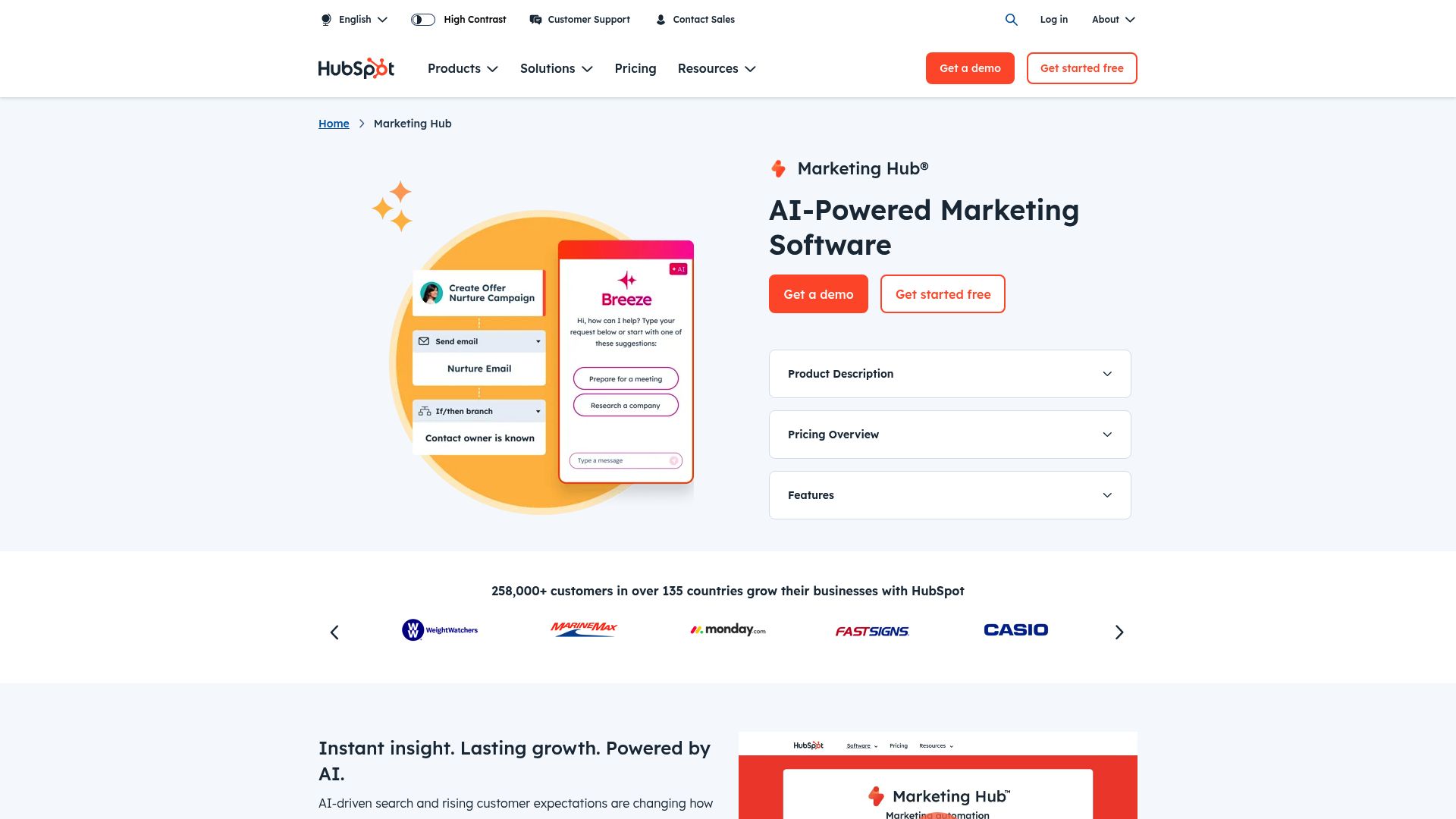
Key features include email marketing, lead management, robust automation workflows, landing page creation, and seamless CRM integration. Marketers benefit from powerful analytics that reveal campaign performance and opportunities for optimization.
HubSpot is ideal for SMBs to enterprises seeking scalable marketing solutions. It boasts a user-friendly interface, strong reporting, and seamless alignment between sales and marketing teams. However, advanced features can become costly as your needs grow.
For example, businesses using HubSpot report a 30% increase in lead conversion rates—a testament to its ability to transform marketing results for those leveraging the best digital marketing tools.
Canva
Canva has revolutionized content creation, standing out among the best digital marketing tools for design. With a free plan and a Pro version at $12.99/month, it’s a go-to for marketers who need professional visuals fast.

Drag-and-drop functionality, thousands of templates for social media, presentations, and ads, plus real-time collaboration, make Canva perfect for content marketers and small businesses. The platform empowers non-designers to produce high-quality graphics without the steep learning curve of traditional design software.
Pros include ease of use, a vast template library, and built-in team collaboration. The main drawback is limited advanced customization for expert designers.
Teams using Canva typically reduce content creation time by 40%, making it an essential part of the best digital marketing tools lineup for 2025.
Hootsuite
Hootsuite remains a staple for social media management and earns its spot among the best digital marketing tools. With plans starting at $99/month, it centralizes scheduling, monitoring, and analytics across all major platforms.
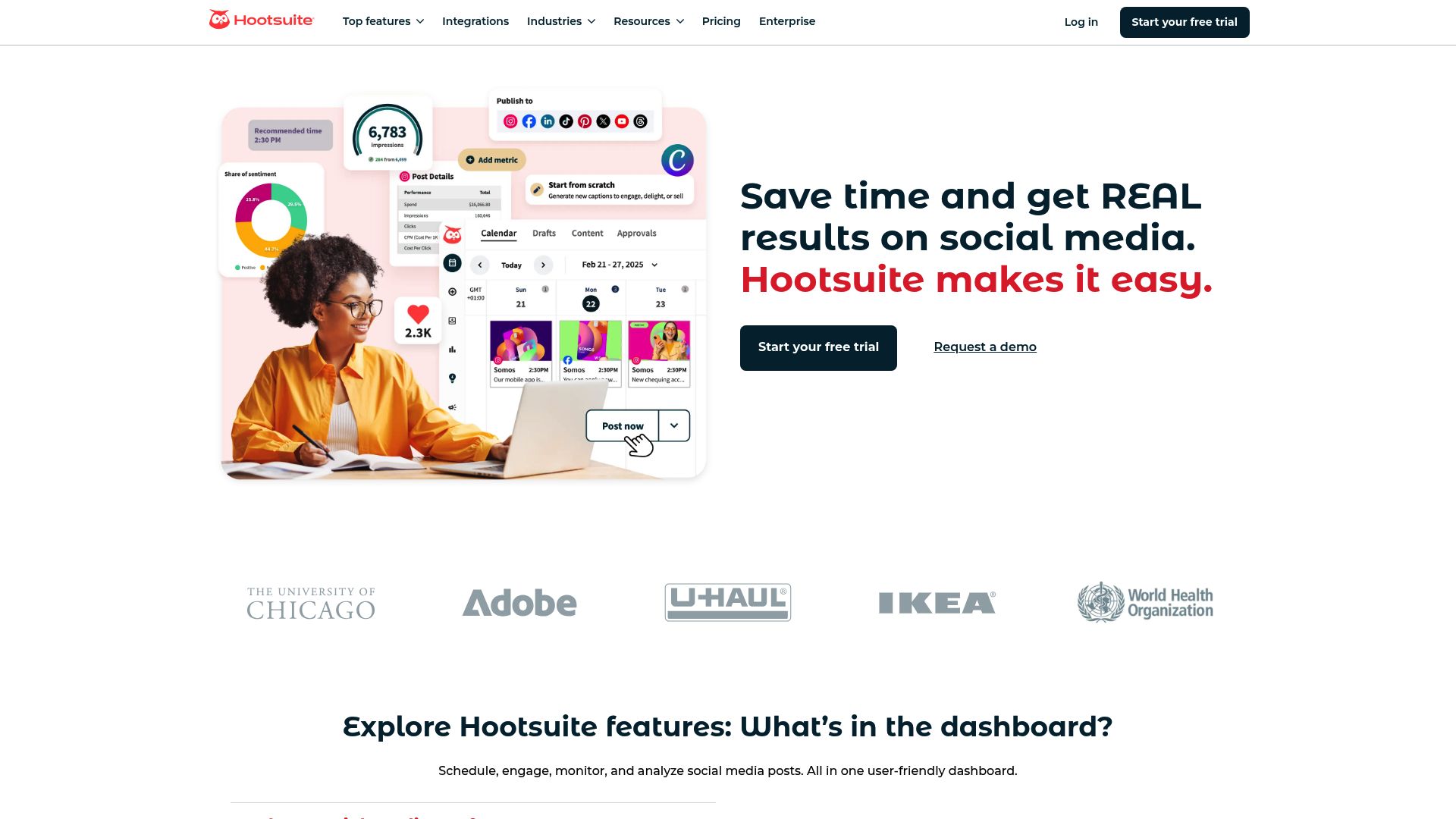
Key features include bulk scheduling, team collaboration, and detailed analytics to measure engagement and ROI. Agencies and brands with multi-channel social strategies find Hootsuite invaluable for streamlining operations.
Its pros are strong analytics, support for various platforms, and time-saving bulk actions. However, advanced analytics come at a higher price point.
Brands leveraging Hootsuite typically see a 20% boost in engagement, reinforcing its position as one of the best digital marketing tools for managing social presence efficiently.
Semrush
For SEO and content marketing, Semrush is a powerhouse among the best digital marketing tools. Starting at $129.95/month, it delivers a comprehensive suite for keyword research, competitor analysis, and content optimization.
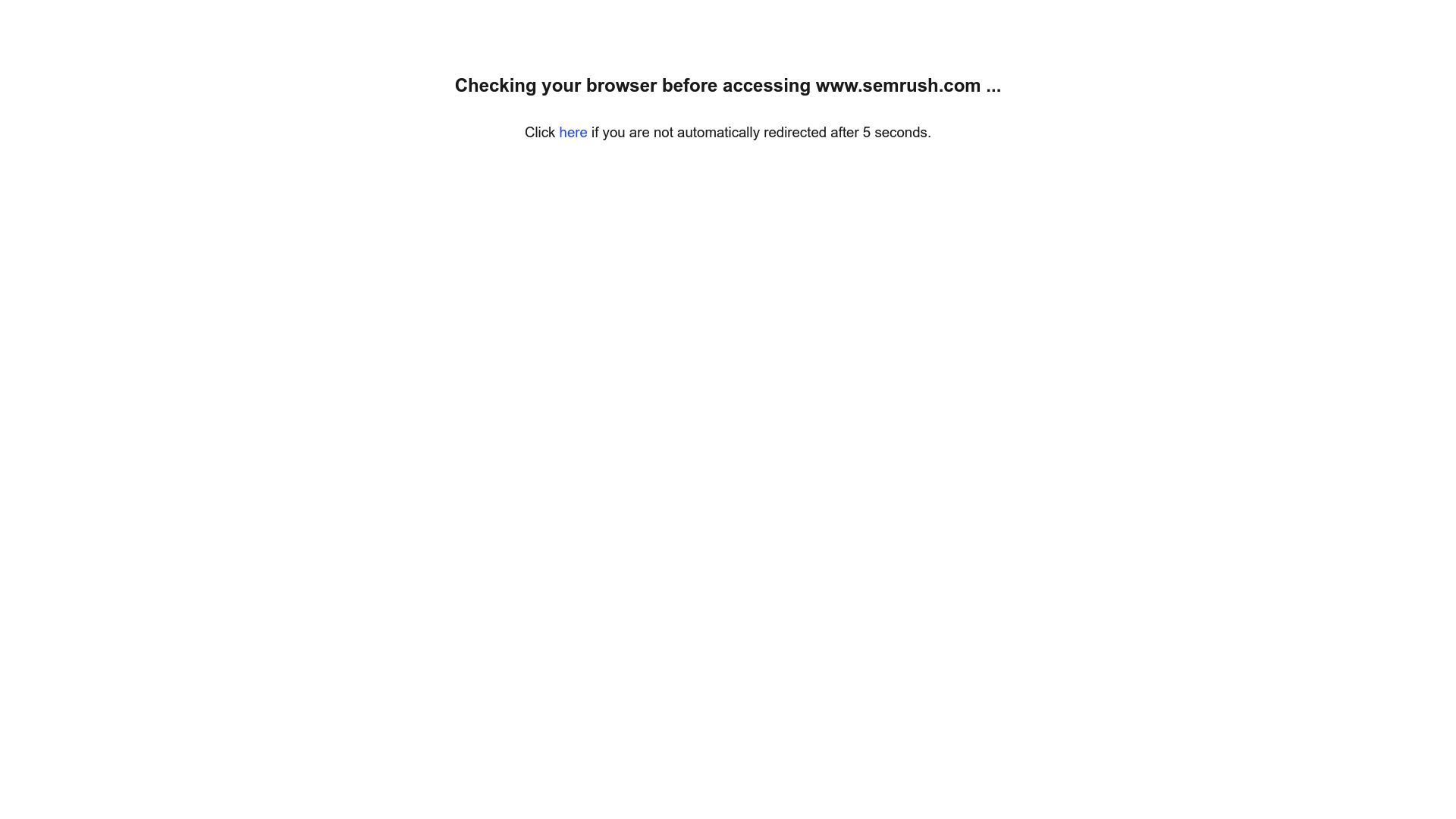
The platform’s extensive database and actionable insights help marketers refine search strategies and outperform competitors. It’s ideal for SEO professionals, digital agencies, and content creators seeking data-driven results.
Pros include robust PPC data, competitor tracking, and actionable recommendations. Beginners may face a learning curve, but the payoff is significant.
Marketers using Semrush report a 25% increase in organic traffic, showing why it’s considered one of the best digital marketing tools for 2025.
Mailchimp
Mailchimp continues to be a favorite among the best digital marketing tools for email campaigns. With a free tier and paid plans from $13/month, it offers accessible solutions for businesses and creators.

Features include email automation, audience segmentation, flexible templates, and insightful analytics. Mailchimp’s intuitive setup makes it easy for anyone to launch campaigns quickly.
The tool’s strengths are user-friendliness, strong deliverability, and robust integration options. However, more advanced automation features are reserved for higher-tier plans.
Users frequently achieve 4x higher open rates with personalized campaigns, proving Mailchimp’s value as one of the best digital marketing tools for effective email engagement.
Google Analytics 4
Google Analytics 4 (GA4) is the backbone of data-driven marketing and a must-have in the best digital marketing tools line-up. It’s free and offers advanced real-time analytics, cross-platform tracking, and AI-powered insights.
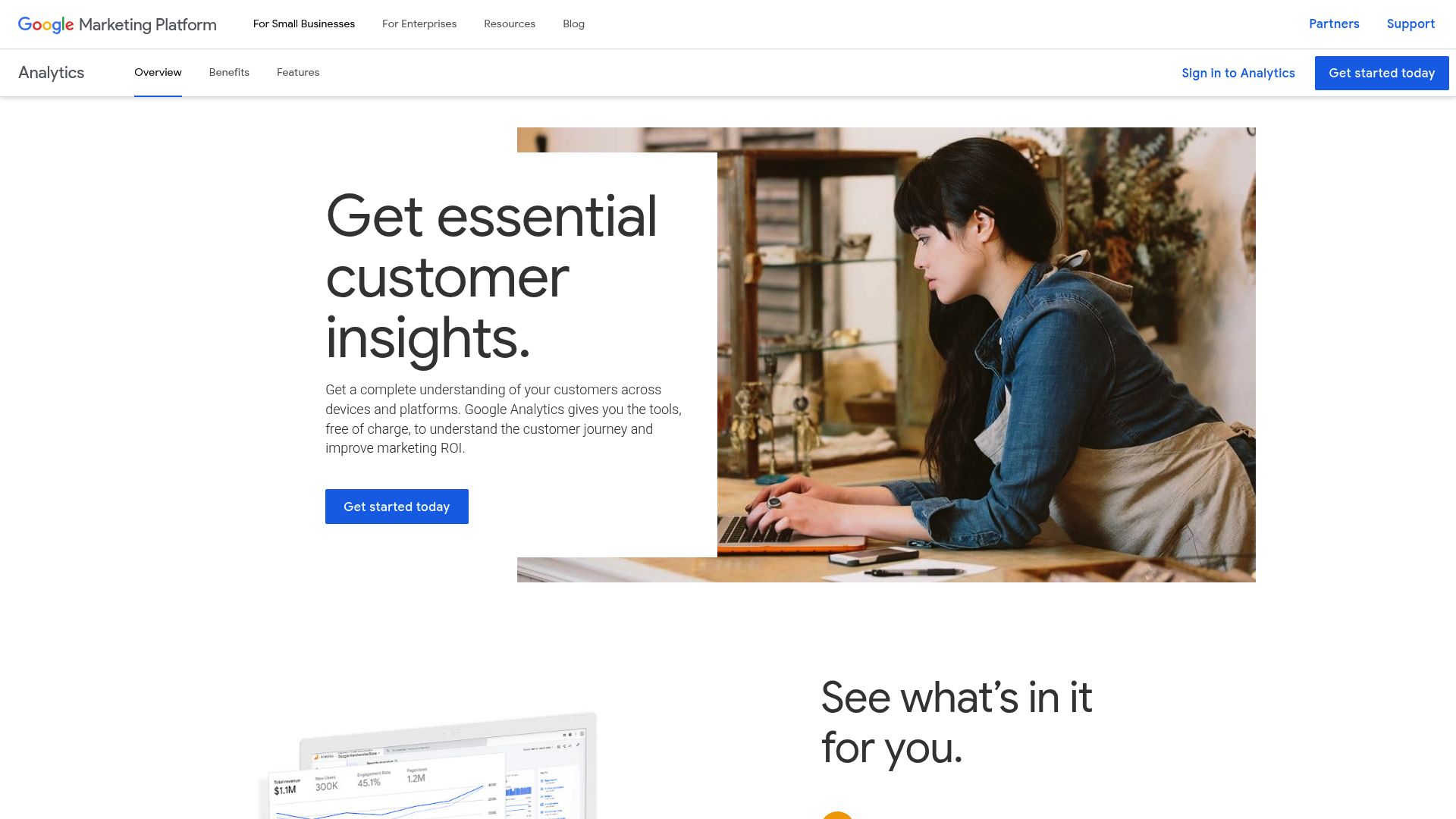
GA4 helps businesses of all sizes understand user behavior, optimize campaigns, and measure ROI. Its integration with Google Ads and other platforms makes it especially powerful for marketers who value unified data.
The pros are its robust analytics capabilities and no cost, while the steep learning curve for advanced features can be a challenge for some users.
Businesses using GA4 often achieve a 30% improvement in campaign ROI, highlighting its importance among the best digital marketing tools.
Zapier
Zapier stands out for marketing automation, connecting over 5,000 apps to streamline workflows. As one of the best digital marketing tools, it offers a free tier and paid plans from $19.99/month.
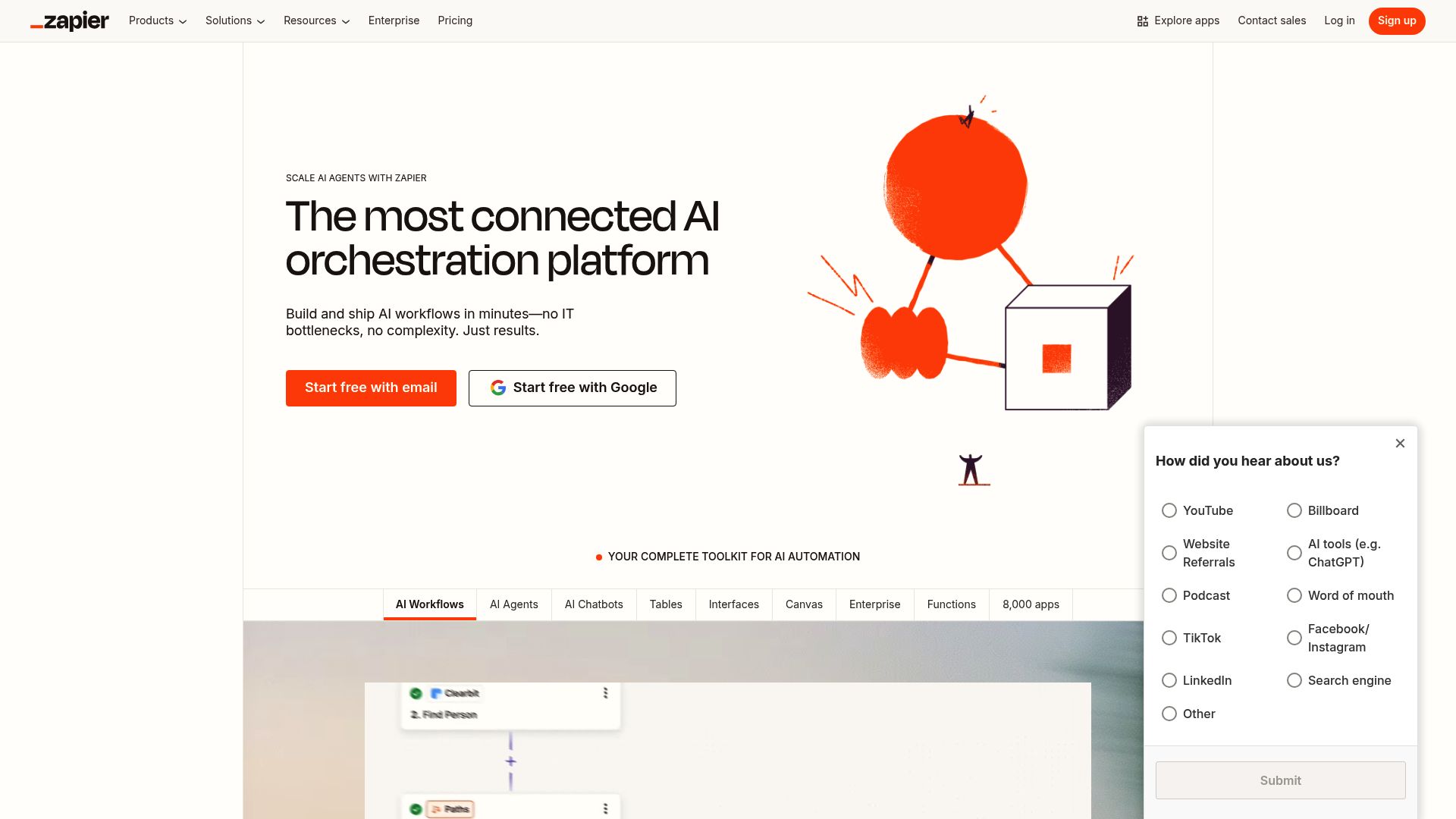
Core features include workflow automation via “Zaps,” app integrations, and customizable triggers/actions. Marketers, solopreneurs, and teams benefit from automating repetitive tasks without coding.
Zapier’s strengths are its ease of setup, time savings, and error reduction. Complex automations might require premium plans, but the efficiency gains are significant.
Teams report automating up to 50% of daily manual tasks, which cements Zapier’s position in the best digital marketing tools for 2025.
Sprout Social
Sprout Social is another leader among the best digital marketing tools for social media management. Plans start at $249/month, geared toward medium to large businesses and agencies.
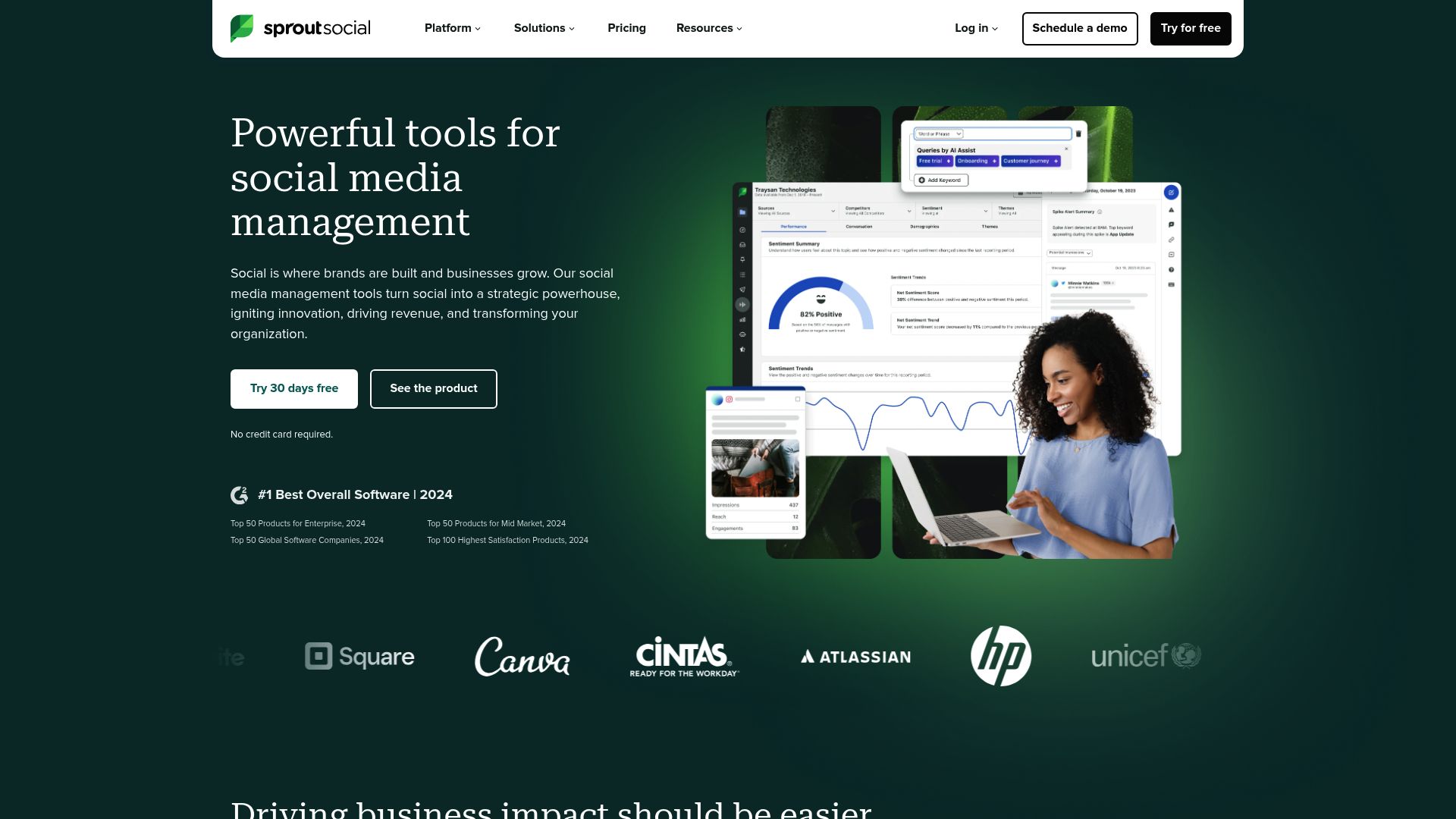
With advanced analytics, social listening, unified inboxes, and collaborative features, Sprout Social helps brands manage multiple accounts and engage audiences efficiently.
Its intuitive UI and in-depth reporting are major pluses, while the higher starting price may be a barrier for some. Excellent customer support further enhances its appeal.
Agencies using Sprout Social report a 35% faster response time to social inquiries, making it a top choice for those seeking the best digital marketing tools for social engagement.
Ahrefs
Ahrefs is a top contender among the best digital marketing tools for SEO research and competitive analysis. Starting at $99/month, it offers backlink analysis, keyword exploration, site audits, and rank tracking.

SEO specialists and content marketers benefit from accurate data, actionable insights, and a user-friendly interface. Ahrefs is especially valued for its industry-leading backlink database.
While there’s no free tier, the depth and quality of data justify the investment for many businesses. Beginners can quickly grasp its interface, accelerating their SEO efforts.
Marketers using Ahrefs often see a 20% improvement in search rankings, solidifying its place among the best digital marketing tools for 2025.
Adobe Marketo Engage
Adobe Marketo Engage is the enterprise solution among the best digital marketing tools, excelling in automation and personalization at scale. Pricing is custom (typically from $1,250/month), reflecting its advanced capabilities.
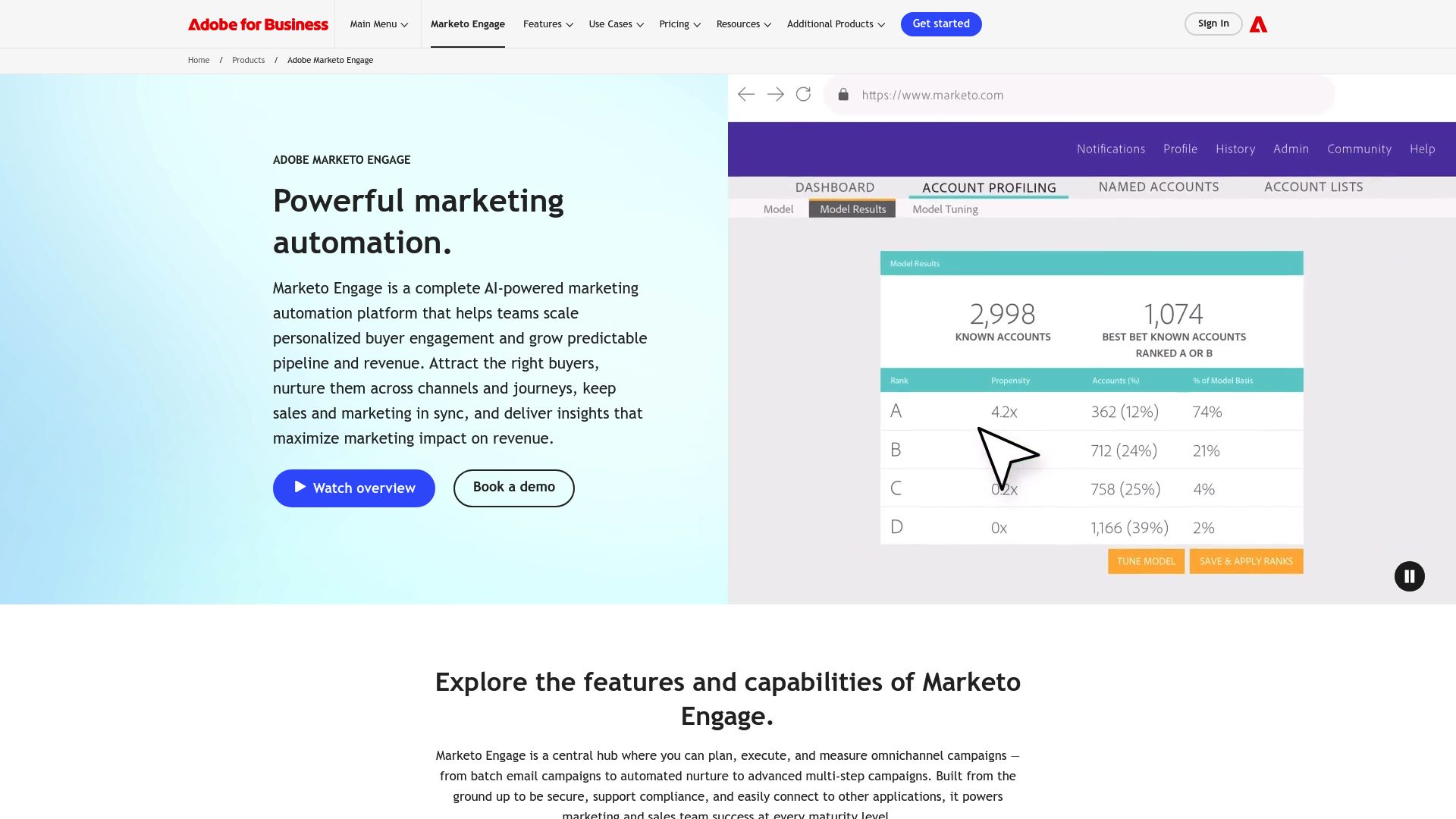
Key features include marketing automation, lead management, account-based marketing, and deep analytics. Marketo is designed for large organizations and B2B marketers needing robust, scalable systems.
Strengths are its powerful automation and reporting, though setup can be complex and costly. The investment pays off for businesses seeking enterprise-grade solutions.
Enterprises report a 50% increase in lead nurturing efficiency when using Marketo, making it one of the best digital marketing tools for large-scale marketing automation. For a broader overview of automation in marketing, see this Marketing Automation Overview.
Quick Comparison Table
| Tool | Best For | Starting Price | Standout Feature |
|---|---|---|---|
| HubSpot Marketing Hub | All-in-one marketing | $50/mo | Automation + CRM |
| Canva | Content creation | Free/$12.99 | Drag-and-drop design |
| Hootsuite | Social media management | $99/mo | Bulk scheduling |
| Semrush | SEO/content strategy | $129.95/mo | Keyword & competitor analysis |
| Mailchimp | Email marketing | Free/$13 | Personalization, templates |
| Google Analytics 4 | Analytics & insights | Free | Real-time, cross-platform |
| Zapier | Workflow automation | Free/$19.99 | 5,000+ app integrations |
| Sprout Social | Social team collaboration | $249/mo | Unified inbox, analytics |
| Ahrefs | SEO/backlink analysis | $99/mo | Industry-leading data |
| Adobe Marketo Engage | Enterprise automation | $1,250+/mo | Advanced personalization |
With these best digital marketing tools, your 2025 strategy will be future-ready, efficient, and primed for measurable growth.
Maximizing ROI with Integrated Marketing Stacks
Modern marketers know that using the best digital marketing tools is just the beginning—true ROI comes from how seamlessly those tools work together. Integration is the secret sauce that transforms scattered solutions into a unified, powerful marketing engine.
The Power of Tool Integration
Combining the best digital marketing tools into a connected stack streamlines your workflow and unlocks new levels of efficiency. Instead of juggling siloed apps, integrated platforms allow teams to:
- Sync contacts and audience data automatically across CRM, email, social, and analytics
- Reduce manual data entry and minimize costly errors
- Share real-time insights for agile, data-driven decisions
- Centralize reporting and performance metrics
Imagine integrating HubSpot with Google Analytics—suddenly, your campaign performance and lead data live side by side, enabling smarter optimization. The best digital marketing tools aren't just powerful on their own; they're transformative when linked together, helping marketers automate, personalize, and scale with ease.
Integration also enables marketers to adapt quickly. If your workflow changes or a new channel emerges, a connected stack lets you plug in new solutions without starting from scratch. This flexibility is crucial as marketing continues to evolve.
Case Studies: Success Through Smart Stacks
Let's look at how real businesses are leveraging the best digital marketing tools through smart integration:
| Brand Type | Tools Integrated | Measurable Outcome |
|---|---|---|
| Ecommerce | Mailchimp, Shopify, Semrush | 30% increase in sales |
| Agency | Hootsuite, Sprout Social, Zapier | Improved client retention |
| SaaS Company | Marketo, Ahrefs, Google Analytics 4 | More marketing-qualified leads |
Each stack is tailored to the brand's goals, but the unifying factor is how these tools work together. By connecting email, automation, analytics, and SEO platforms, teams can track the entire customer journey, optimize campaigns in real time, and prove ROI.
For agencies in particular, integrating the best digital marketing tools can mean the difference between juggling chaos and delivering consistent, scalable results for clients.
Common Pitfalls and How to Avoid Them
Even with the best digital marketing tools, integration isn't always smooth sailing. Common challenges include:
- Overlapping features leading to wasted spend
- Integration failures causing data silos
- Underused features due to lack of training
To sidestep these pitfalls, regularly audit your stack for redundancies. Use this essential digital products checklist to make sure each tool earns its place. Invest in onboarding, prioritize platforms with open APIs, and foster a culture of continuous learning. This proactive approach ensures your tools work together—and for you.
Future-Proofing Your Marketing Tech Stack
As marketing technology advances, future-proofing your stack means choosing the best digital marketing tools that embrace AI, automation, and ongoing innovation. Platforms investing in AI are already redefining workflows and campaign performance—AI's impact on advertising in 2025 is set to be massive.
Look for solutions with active development and strong support communities. Monitor trends, test new features, and stay curious. The best digital marketing tools today may evolve, but a flexible, integrated stack will keep you ahead of the curve.
Expert Tips for Getting the Most Out of Your Digital Marketing Tools
Unlocking the full power of the best digital marketing tools requires more than just signing up for a subscription. To truly drive results, marketers need to focus on team training, performance tracking, ongoing learning, creativity, and robust security. Here’s how to maximize your investment in 2025.
Training, Onboarding, and Team Adoption
Investing in training is essential for extracting maximum value from the best digital marketing tools. Start with comprehensive onboarding for new platforms—most vendors offer webinars, tutorials, and step-by-step guides. Assign internal champions to become go-to experts within your team.
Encourage ongoing learning by tapping into resources like user communities and certification programs. For marketers building their own digital products or toolkits, Building digital products for marketers offers actionable insights that can boost both confidence and competence.
- Schedule regular team workshops
- Share key learnings from vendor resources
- Celebrate early wins to encourage adoption
A well-trained team is more likely to embrace new tools and drive measurable results.
Measuring Performance and ROI
To ensure your investment in the best digital marketing tools pays off, set clear KPIs before implementation. Define success metrics for each tool—think open rates, conversions, or time saved on automation. Leverage built-in dashboards to monitor progress.
- Use analytics features for real-time reporting
- Compare tool performance against goals monthly
- Adjust strategies based on data, not hunches
Regular reviews help you identify what’s working and where you can optimize further. This approach keeps your marketing stack lean and focused on ROI.
Staying Agile and Up-to-Date
The digital landscape evolves quickly, and so do the best digital marketing tools. Stay ahead by subscribing to industry blogs, following thought leaders, and joining active user communities. Participate in webinars or beta tests to experiment with new features before your competitors.
- Set aside time for quarterly tool audits
- Share updates and tips in team meetings
- Rotate team members through different tool responsibilities
Staying agile ensures your stack remains cutting-edge and your strategies adapt to industry shifts.
Balancing Automation with Human Creativity
While automation streamlines repetitive tasks, the best digital marketing tools still need a human touch. Combine automated workflows with authentic messaging and creative content.
- Use automation for scheduling, segmentation, and reporting
- Reserve time for brainstorming and content ideation
- Pair AI-powered features with custom visuals or storytelling
For deeper insights on blending automation and creativity, explore Harnessing Large Language Models in Marketing, which examines how AI enhances personalization and content creation. Remember, technology amplifies your creative voice—it doesn’t replace it.
Security and Compliance Best Practices
With increased reliance on the best digital marketing tools, data privacy and security are non-negotiable. Review each tool’s compliance with regulations like GDPR and CCPA. Implement role-based access to sensitive data and enable two-factor authentication where available.
- Regularly audit user permissions
- Keep all software updated to patch vulnerabilities
- Document security protocols for your team
By prioritizing security, you protect customer trust and ensure your marketing efforts run smoothly.
Now that you’ve seen how the right digital marketing tools can save you time, boost your ROI, and help you build a thriving business in 2025, why not take the next step? If you’re ready to move from trading your hours for dollars to creating self-sustaining digital products, I’d love to help you get started. At CreateSell, you’ll find practical guidance and resources to help you turn your expertise into a successful one-person business—no more guesswork or overwhelm. Ready to build your digital product journey? Get Started today!